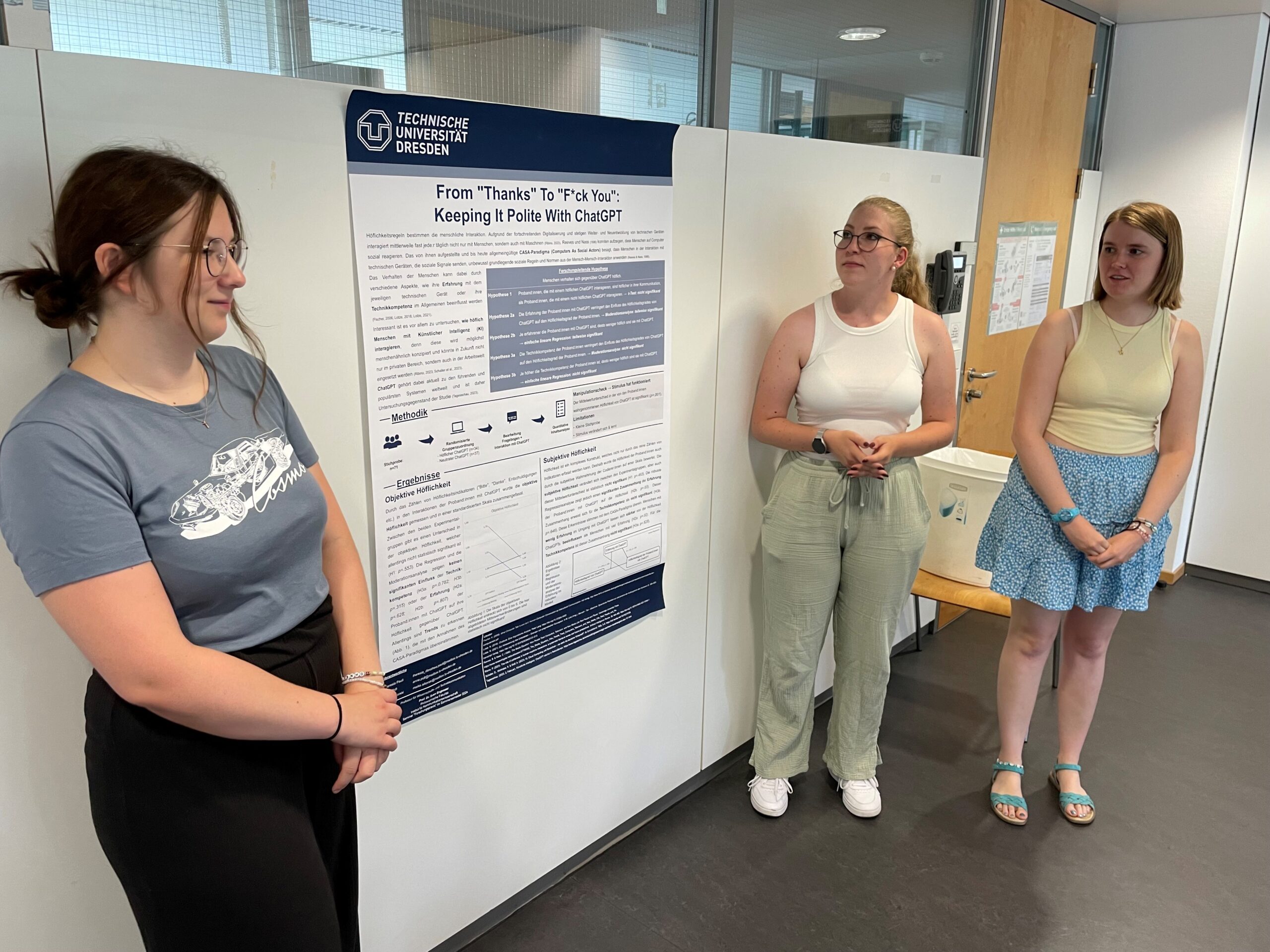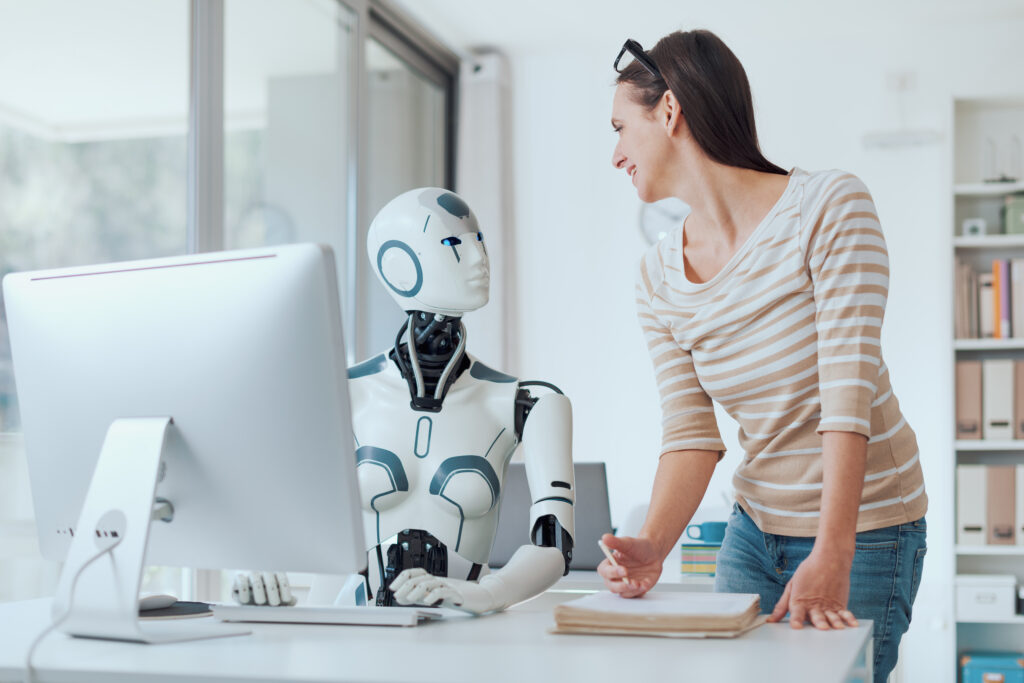Research Studio of Board Member Sven Engeßer Explores the Impact of AI on Society and Communication
Client
Date

News
The Chair of Media and Communication recently conducted a research studio under the leadership of our DST Board Member Sven Engeßer, focusing on the intersection of AI technology and its effects on society. The research studio delved into three critical topics: the future of work with AI, politeness in human-AI interactions, and the ability to distinguish AI-generated content. These studies provide valuable insights into the evolving relationship between humans and AI, particularly in academic and professional contexts.
„NOTHING WILL BE 100% REPLACED BY AI“
ChatGPT and the (Professional) Future: A Qualitative Analysis of Students‘ Attitudes
The first study titled „Nothing Will Be 100% Replaced by AI“ investigates how students from various disciplines perceive the influence of AI, particularly ChatGPT, on their future careers and daily lives. The rapid advancement of AI technologies has significantly impacted numerous aspects of life, and this research aims to understand the hopes, fears, and attitudes of students who are on the brink of entering the workforce.
The study revealed that while students recognize the utility of AI tools, their attitudes vary significantly based on their field of study. Engineering and natural sciences students showed a higher affinity for AI, viewing it as a beneficial tool in their future careers. In contrast, students from social and educational sciences expressed concerns about the ethical implications and potential threats to creative fields. Despite these concerns, the general consensus among students is that AI, including tools like ChatGPT, will complement rather than completely replace human roles in the workplace.
From „Thanks“ to „F*ck You“: The Role of Politeness in Interactions with ChatGPT
The second study, „From ‚Thanks‘ to ‚F*ck You‘,“ explores the dynamics of politeness in interactions between humans and AI, specifically ChatGPT. Building on the CASA (Computers As Social Actors) paradigm, which suggests that humans unconsciously apply social norms to their interactions with machines, this research examines how politeness is maintained or altered when communicating with AI.
The findings indicate that while people generally maintain polite behavior towards AI, this politeness can diminish with increased experience and familiarity with the technology. Interestingly, the study found that users with lower technological competence tended to be more influenced by the politeness of ChatGPT, while those with higher competence showed a decline in polite interactions. These insights underscore the complexity of human-AI interactions and raise questions about how AI design can influence user behavior.
Not Much Better Than a Coin Toss: Can Students Identify AI-Generated Texts?
The final study, „Not Much Better Than a Coin Toss,“ investigates the ability of students to distinguish between texts generated by ChatGPT and those written by humans. In an era where AI-generated content is increasingly prevalent, this research aimed to assess whether students can reliably identify AI-produced texts, a skill that is becoming increasingly important in academic and professional settings.
Participants were asked to differentiate between pairs of texts, one generated by ChatGPT and the other by a human. The results were mixed, with only about 60% of the texts being correctly identified, which is only slightly better than random chance. The study suggests that while students are becoming more familiar with AI tools, their ability to critically evaluate and identify AI-generated content remains limited. This finding highlights the need for enhanced educational initiatives to improve AI literacy.
Looking Ahead
These studies reflect the Department of Speculative Transformation’s commitment to exploring the societal impacts of AI. As AI continues to integrate into various aspects of life, understanding how it affects human behavior, professional development, and communication is crucial. The research conducted in this studio not only sheds light on current trends but also sets the stage for future investigations into the evolving relationship between humans and artificial intelligence.
For more information on these studies, please contact Prof.Sven Engeßer, Chair of Communication and Media at Tu Dresden.


